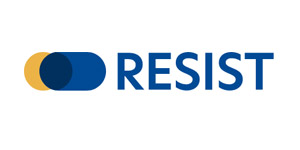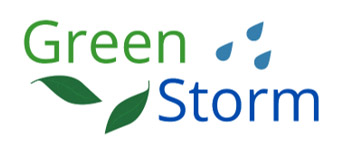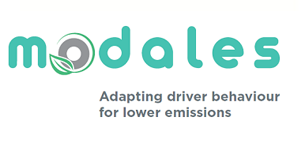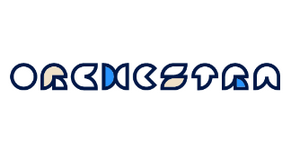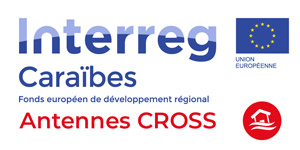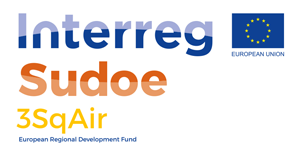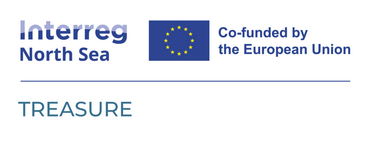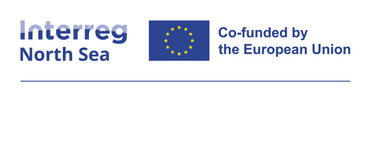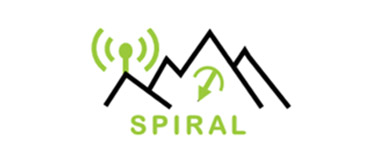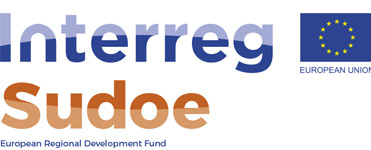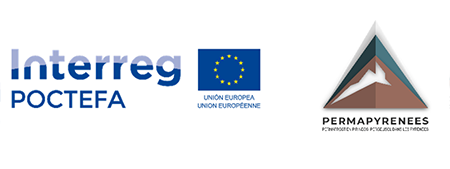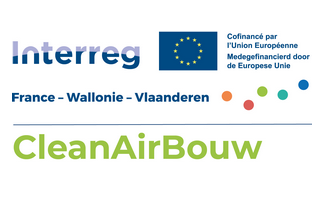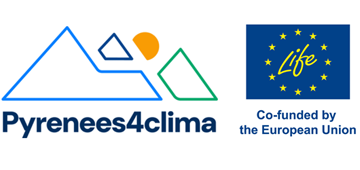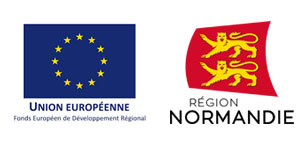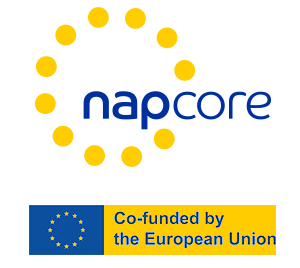Cerema is a partner of 58 projects funded by the European Commission, mainly within the Horizon 2020 Research & Innovation programme (2014-2020) and within the regional cooperation section known as Interreg of the regional development fund, ERDF.
The projects focus on sustainable regional development in collaboration with local authorities, industrial and academic partners across Europe.
Explore our current projects according to the desired window
Horizon Europe Horizon 2020 Interreg LIFE
or explore our European projects by topic
Horizon Europe
MSP4BIO
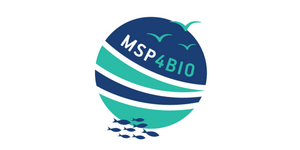
Improved science-based maritime spatial planning to safeguard and restore biodiversity in a coherent european mpa network
The main objective of MSP4BIO is to develop an integrated and modular Ecological-Socio-Economic (ESE) management framework for the protection and restoration of marine ecosystems. The framework will take into account the criteria and objectives of relevant policies (MSFD, WFD, MSPD, CFP, etc.) and contribute to the EU Biodiversity Strategy (EUBS) 2030 and the Convention on Biological Diversity post-2020 framework. Six test sites in five European Sea Basins have been selected to conduct the analysis and to showcase and operationalise the ESE management framework. The test sites reflect the processes that are taking place at the national, sub-and-supranational levels, at different geographical scales, and focus on different socio-economic and environmental challenges.
Project start and end: august 2022 - august 2025
For further information: Website project
REALLOCATE
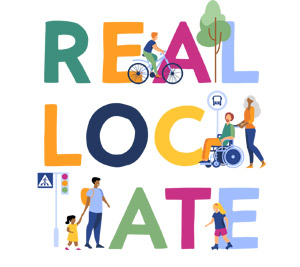
REALLOCATE transforms streets into inclusive, green, safe and future-proof urban spaces, where communities live and thrive. The project enables researchers, mobility experts, urban planners and local citizens to collectively re-imagine our cities and redesign how we move from one place to another. This four-year project (May 2023 - April 2027) catalyses change in mobility practices. Together with relevant stakeholders, the project team develops integrated and innovative sustainable urban mobility solutions, enabling European cities to exchange knowledge, experiences and ideas, and inspire other cities to replicate and adapt the developed solutions to their own contexts.
REALLOCATE is aligned with the climate neutrality goals of the Mission Cities 2030. It supports cities in working towards their net-zero carbon objectives, and accelerates the development of integrated and innovative sustainable urban mobility solutions and tools for safe, inclusive and smart cities. Cerema is involved in the project as an expert on mobility (safety, public space sharing, mobility for all, planning), as a producer of methodology and experience sharing to enhance the project's contributions, and as local support for the Lyon partners.
Project start and end: May 2023 - April 2027
For further information: Website project
SETO
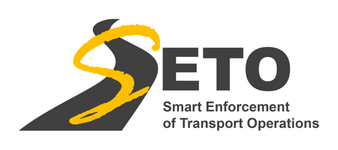
SETO, a project funded by the European Union under the Horizon 2020 program, aims to address the inefficiencies in the current process of implementing directives and regulations in the transportation sector. This process is time-consuming, resource-intensive, and often applied randomly. It burdens regulatory authorities, leads to disruptions, accidents, infrastructure damage, and harms the environment.
To resolve these issues, SETO is developing an innovative digital platform. This platform collects and integrates data from various sources, providing simplified access to regulatory information. It ensures data security through the use of blockchain technology. It creates an innovative, consistent, and robust enforcement assistance system suitable for multimodal and cross-border environments.
SETO's goals are ambitious. They aim to promote a more competitive and equitable transportation market by optimizing human and economic resources, reducing costs, improving infrastructure sustainability, reducing accidents, and strengthening government control services.
To achieve these goals, the platform will be tested and validated in real-world scenarios with the direct participation of stakeholders. SETO is led by a consortium of 14 partners from seven European countries, bringing a diversity of expertise and know-how to all stages of the transportation value chain. This diversity will ensure the dissemination and exploitation of products and technologies developed within the SETO project.
Cerema Centre-Est, through its Department of Risk, Infrastructure, and Materials (DRIM), participates in the SETO project as a partner, developing an innovative system to identify and detect heavy vehicle axles, including when they are raised using inductive loops. Cerema also contributes to improving weigh-in-motion techniques and participates in tests of onboard weighing systems for heavy vehicles.
For further information: Website project
CALECHE
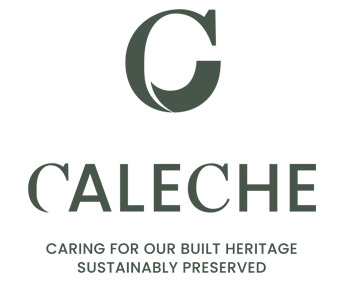
Launched in October 2023 and spanning over 36 months, CALECHE brings together a consortium of experts, scientist, industrials, sociologists and historians. We are driven by the challenge of maintaining the integrity and aesthetics of historic buildings while integrating modern sustainability standards. Our focus lies in developing and demonstrating renovation approaches that are both environmentally friendly and socially and economically viable.
At CALECHE, we envision a future where historic buildings tell tales of our past and play a crucial role in a sustainable future. Our mission is to transform these timeless structures into epitomes of energy efficiency and environmental stewardship while respecting their unique historical and cultural significance.
The Innovative Renovation Approaches is to develop methods that respect the heritage value of buildings while enhancing their energy efficiency and reducing environmental impacts. To establish decision-making frameworks that balance cultural preservation with modern sustainability needs, a Multi-benefit Decision Tool will be developped. And the project will include a strong part on community engagement and inclusivity: to ensure our renovated spaces resonate with communities, maintaining their historical essence and fostering a sense of shared heritage.
For further information: Website projetc
Horizon Europe Programme (2021-2027)
AWARD
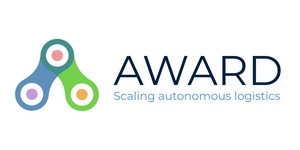
AWARD’s objective is to bring disruptive changes in the logistic industry by scaling Autonomous Driving Vehicles (AD Vehicles) system and Logistics Operation & Fleet Management (LOFM) system for heavy-duty vehicles, targeting compliance with ISO 26262 and taking into consideration SOTIF recommendations. The AD Vehicles’ Autonomous Driving System (ADS) will be based on multiple sensor modalities and an embedded teleoperation system to address 24/7 availability. The ADS will then be integrated into multiple vehicle types used in low-speed areas. Finally, these vehicles will be deployed, integrated and operated in a variety of real-life use cases to validate their value in the application and identify any limitations and functional level to address 24/7 availability. This challenge will be particularly tackled by extending the AD Vehicles performances under harsh weather conditions (rain, fog, snow) that are today limiting the Operation Design Domain (ODD), which describes the specific conditions under which a given AD Vehicle or feature is intended to operate. These are to be developed along with an adapted regulatory framework for autonomous logistics operations in warehouses, airports, and ports.
Project start and end: 01/2021 - 31/12/2023
mySMARTlife
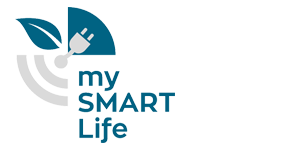
Launched in December 2016, mySMARTlife - Smart Transition of EU cities towards a new concept of smart Life and Economy - must define an urban energy transition strategy based on technological innovation and the experimentation of new business models. Three major European cities, Nantes, Hamburg and Helsinki, are the main areas for experimentation. Following rigorous evaluation, the solutions tested (electro-mobility, citizen participation, renewable energy production and storage, urban data management, intelligent public lighting management, etc.) are intended to be duplicated in other European cities. Under the coordination of Spain's CARTIF, 28 partners from 7 Member States are working together until October 2021.
Cerema led the situational analysis in the Nantes urban context. This analysis contributes to defining the assessment methodology for the solutions tested, and its implementation on the Nantes demonstrator.
Project start and end: 12/2016 – 10/2021
For further information: Cordis sheet Cerema project sheet
FCCIS - Future Circular Collider Innovation Study

CERN (European Council for Nuclear Research, now the European Organization for Nuclear Research) builds and operates a complex of particle accelerators that is unique in the world, with the aim of understanding the composition of the universe and how it works. Current accelerators have made some remarkable discoveries, but questions remain. To answer them, CERN is studying the feasibility of a future circular collider (FCC) placed in a tunnel some 90 km long on French and Swiss territory. The results of this feasibility study are expected by the end of 2025, enabling discussions on the possible construction of this major scientific facility.
As part of the European FCCIS project, Cerema is contributing its technical expertise on risks, environment, mobility and planning, with a particular focus on the territorial constraints associated with infrastructure placement, the transnational environmental assessment framework, the management of excavated materials and territorial impacts.
Project start and finish: November 2020 - October 2024
For more information: Project website
Bison
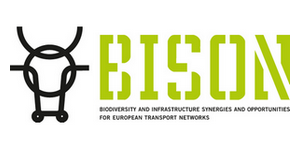 Human activities are mainly at the root of the massive collapse in biodiversity that is currently taking place. "In most parts of the world today, nature has been significantly altered by multiple human factors, and the vast majority of ecosystem and biodiversity indicators show a rapid decline. In total, 75% of the earth's surface is significantly altered...". Transport activities and infrastructures bear a share of the responsibility. However, solutions have been put in place since the early 1960s, and efforts to reduce the impact of infrastructures on biodiversity are growing all over the world, and particularly in Europe. The aim of the Horizon Europe BISON (Biodiversity and Infrastructure Synergies and Opportunities for European Transport Networks) project is to draw up a Europe-wide assessment of the actions, tools and practices applied throughout the life of a transport and energy infrastructure project that promote better integration of biodiversity. The best of these tools and techniques were selected for dissemination across the continent. This process also made it possible to reveal the barriers to their dissemination and local appropriation, to detect gaps in technical and scientific knowledge, and to identify the most up-to-date emerging themes. These elements were after several analyses then used to define a Strategic Research and Deployment Agenda (SRDA), revealing the research themes that remain to be investigated and based in particular on the dissemination of knowledge and. In this regard, an online technical handbook and guides on tools and technics, regulation and defragmentation has been produced by the BISON team for the benefit of the European Union. Cerema (and most of the Territorial Divisions as well as the DTecREM, managed by DTerSud-Ouest) has been heavily involved in all the WorkPackages of this BISON project, being the 6th in terms of the share of the overall BISON project budget allocated to Cerema, out of a total of 42 European partners. Thanks to this BISON project, Cerema is now seen as a key partner by most players in the field of biodiversity and transport infrastructure. All the deliverables from the BISON project will be available just before the end of the project on December 2023.
Human activities are mainly at the root of the massive collapse in biodiversity that is currently taking place. "In most parts of the world today, nature has been significantly altered by multiple human factors, and the vast majority of ecosystem and biodiversity indicators show a rapid decline. In total, 75% of the earth's surface is significantly altered...". Transport activities and infrastructures bear a share of the responsibility. However, solutions have been put in place since the early 1960s, and efforts to reduce the impact of infrastructures on biodiversity are growing all over the world, and particularly in Europe. The aim of the Horizon Europe BISON (Biodiversity and Infrastructure Synergies and Opportunities for European Transport Networks) project is to draw up a Europe-wide assessment of the actions, tools and practices applied throughout the life of a transport and energy infrastructure project that promote better integration of biodiversity. The best of these tools and techniques were selected for dissemination across the continent. This process also made it possible to reveal the barriers to their dissemination and local appropriation, to detect gaps in technical and scientific knowledge, and to identify the most up-to-date emerging themes. These elements were after several analyses then used to define a Strategic Research and Deployment Agenda (SRDA), revealing the research themes that remain to be investigated and based in particular on the dissemination of knowledge and. In this regard, an online technical handbook and guides on tools and technics, regulation and defragmentation has been produced by the BISON team for the benefit of the European Union. Cerema (and most of the Territorial Divisions as well as the DTecREM, managed by DTerSud-Ouest) has been heavily involved in all the WorkPackages of this BISON project, being the 6th in terms of the share of the overall BISON project budget allocated to Cerema, out of a total of 42 European partners. Thanks to this BISON project, Cerema is now seen as a key partner by most players in the field of biodiversity and transport infrastructure. All the deliverables from the BISON project will be available just before the end of the project on December 2023.
For further information: Website project
INTERREG PROGRAMMES (ERDF)
RISVAL
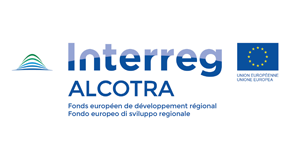
RISVAL - Seismic risk and alpine vulnerability - is a cross-border cooperation project between alpine valley communities, funded by Interreg ALCOTRA (France-Italy). RISVAL aims to better characterise the seismic risk of the Alpine border region, which is most often subjected to low-intensity earthquakes but potentially destructive events (every 30 years or so). One of the objectives of RISVAL is to enable macro-seismic intensities to be rapidly characterised after an event. Shared tools will also be developed to describe the vulnerability of buildings and strategic infrastructures. Coordinated by the Aosta Valley Autonomous Region (Italy), RISVAL involves regional and local authorities in the development of seismic risk management tools: common database structures to improve knowledge and cross-border risk management, innovative cross-border surveillance system and cross-border strategies to reduce the consequences of seismic risks.
Cerema offers its knowledge of the terrain and its experience to improve major movement prediction maps (shakemaps) in near-real time. It also carries out on-site measurements to estimate the vulnerability of road engineering structures (A51 and access viaduct to the Mont Blanc tunnel, known as the Egratz).
Project start and end: 06/2017 – 06/2020
For further information: Cerema project sheet
Mobility makers
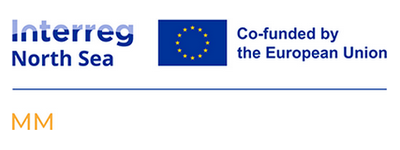
Mobility Makers: Customising sustainable mobility mixes to fit users’ needs
The MM-Project is an initiative of 15 Project Partners, who are working in different parts of the North See Region. These partners are the following : Intercommunale voor Ontwikkeling van het Gewest Mechelen en Omgeving (Lead Partner), Intercommunale Leiedal, Universiteit Gent, Georg-August-Universität Göttingen, Cerema, Communauté de Communes du Pays de Lumbres, Boulogne sur mer Développement Côte d’Opale, Communauté de Communes de Desvres Samer, Communauté de Communes de la Terre des 2 caps, Region Midtjylland, Designskolen Kolding, Länsstyrelsen Skåne, Energikontor Syd AB, Gemeente Vlissingen, HZ University of Applied.
In essence, the partnership comprises knowledge institutions, such as universities, along with local and regional public authorities.
Despite the potential benefits of opting for healthier alternatives, like exercising while commuting, achieving cost savings, often faster travel, and minimizing environmental impact, many people do not embrace these options. The MM-Project delves into the motivations of distinct user groups, exploring what factors contribute to their heavy reliance on cars, and aims to identify strategies to reduce their dependence on automobiles. Why do individuals have a strong affinity for driving their cars? How can we encourage people in rural and peri-urban areas of the North Sea Region to participate in the modal shift?
Thanks to this Interreg project, partners (with living labs) thus aim to develop and execute user-centric mobility solutions and to incentivise target groups to change their daily mobility practices and the way they perceive these practices.
The Cerema and the Communauté de Communes du Pays de Lumbres (CCPL) and the Cerema Hauts-de-France are working together and are providing an active participation in the European Mobility Makers project as co-leader of work package 1. The CCPL is keen to move on to the next stage, drawing on the experience of our European partners in the North Sea region to design innovative alternative mobility solutions that take user behaviour into account. The CCPL wants to improve mobility services, and identify new equipment and also find solutions that can have an impact on changing the behaviour of residents. The Cerema in partnership with the CCPL will make a film on the mobility habits of the inhabitants of the CCPL's territory in June and september 2024 by accompanying two groups of people (people aged over 65 and young people aged from 13 to 25) on their journeys.
For further information: Website project
LIFE
LIFE-ADSORB

LIFE-ADSORB is a project funded by the European Life programme. It implements and tests an innovative prototype for the effective retention of rainwater pollutants from road run-off, released into the natural environment. It focuses on reducing organic and mineral micro-pollutants: metals, suspended solids (SS), hydrocarbons and other environmental toxic substances (phthalates, alkylphenols, perfluorinated compounds, etc.) whether present in dissolved or particulate form. LIFE-ADSORB is led by the city of Paris and brings together academic research laboratories (INRA and ENPC), Cerema and the engineering and research office EcoBird.
Cerema leads the assessment of the filter's effectiveness and contributes directly to the instrumentation, acceptance testing and modelling phases of the filter. It carries out some analyses of micro-pollutants and participates in the environmental assessment for the life cycle analysis (LCA) section.
Project start and end: July 2018 - September 2023
Learn more: LIFE-ADSORB project sheet
LIFE Heat&Cool

Launched at the end of 2021 under the auspices of the Provence Alpes Cotes d'Azur d'Azur, the LIFE Heat&Cool project aims to develop heating and cooling networks based on renewable and recovered energies. It is part of the region's strategy to achieve carbon neutrality by 2050 and adapting to climate change. The project mobilizes 8 partners and is made up of 19 actions that explore the full range of tools and levers to promote deployment of district heating networks : opportunity assessment, planning, certification procedures, technical and economic decision-support tools, invoicing, legal arrangements, participatory or awareness-raising, training and support for local to help local authorities set up their projects.
Cerema is particularly involved in 3 actions involving development of a tool to identify the potential of heating and cooling networks, taking them into account in urban planning documents urban planning documents, and updating existing assessment and labelling and labeling procedures.
Project start and end: 2021 – 2026
Learn more: "DHC Potential" : a map to identify the District Heating and Cooling potential of development | Cerema
ERDF
MLA3
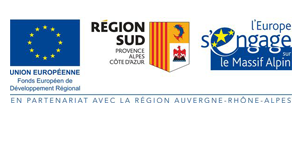
MLA3 (Slow movements in the Alps: Anticipate and Develop) is a project co-funded under the Interregional Program of the Alps Range (POIA-ERDF) managed by the Provence Alpes Côte d'Azur region (in partnership with the Auvergne Rhône Alpes region).
It aims to better understand and model slow clay-type landslides, in a context of climate change, in order to better anticipate them and consider development in the affected areas. The project is based on the monitoring of pilot sites along the RN85 (Route Napoléon). For each pilot site, the project involves discussion with all the stakeholders of the affected regions (one third of the budget devoted to Human and Social Sciences) to improve the management of the risk related to this type of slowly evolving phenomenon. Four municipalities are involved, along with the Isère Departmental Council and the Interdepartmental Roads Directorate (DIR) Mediterranean, the Isère mountain land restoration service (RTM 38) and the Pôle Alpin des Risques Naturels (PARN) .
Cerema is involved in all 4 aspects of the project: (A) characterisation of massifs and knowledge of the sliding mechanisms at work, (B) instrumentation and monitoring of movements, (C) modelling to anticipate and (D) discussion around the management of risks induced by slow landslides.
Project start and end: 04/2018 - 03/2021
CEF
FENIX
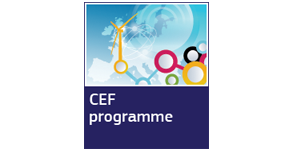
FENIX,« A European FEderated Network of Information eXchange in Logistics», is a project funded by the Connecting Europe Facility (CEF). It aims to deploy and test intelligent transport services (ITSs) for freight and logistics on a dozen European multimodal exchange and transport corridors, three of which are in France. FENIX is coordinated by ERTICO and brings together 26 partners from 12 European countries, including 6 French partners. It is a continuation of the AEOLIX (Horizon 2020) project, of which Cerema is a partner.
Cerema supports the deployment of equipment and services pertaining to the access and port area of the Grand Port Maritime de Marseille as part of the Lyon-Avignon-Marseille Mediterranean corridor. Cerema integrates the dematerialisation of transport procedures, particularly those relating to hazardous goods, into the project.
Project start and end: April 2019 - March 2022
InterCor
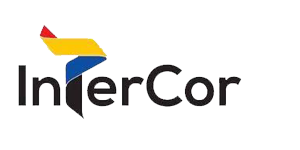
InterCor is a project funded by the Connecting Europe Facility (CEF). It is a pilot deployment project of cooperative intelligent transport systems and services (C-ITS) with a more specific focus on freight and heavy traffic. The network covered is in France, England, Flanders and the Netherlands (London- Lille - Paris - Rotterdam). InterCor drives the C-ROADS platform.
Cerema is not a partner in the Intercor project, but provides support to the Interdepartmental Directorates of the Roads Involved (DIR).
Project start and end: 09/2016 – 02/2020
For further information: CEF programme InterCor Sheet
EMFF/EMFAF
MSP-OR
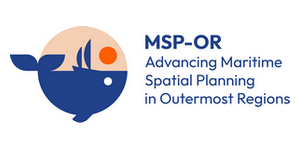
The main objective of the project MSP-OR (Advancing maritime spatial planning in outermost regions) is to support MSP competent authorities in Portugal (Azores and Madeira) and Spain (Canary Islands) in advancing the implementation of their MSP processes, launched with the previous MarSP project; and in France (French Guiana) advancing with knowledge, providing grounds to launching and adopting the principles of MSP. During the three years of the project, important developments will be tailored, according to the specific needs of each participating region, such as filling knowledge gaps, training actions and interactive stakeholder involvement, sectoral planning approach and ecosystem approach applied at a regional level.
Project start and end: october 2021 - september 2023
.
DG-DEFIS
AUTREMENT
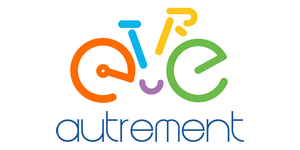
AUTREMENT is a European cooperative project involving the City of Strasbourg - as project leader -, the municipalities of Kairouan and Mahdia (Tunisia), ALDA, CODATU, and CEREMA, co-financed by the European Union.
Its objective is to promote active mobility and enhance citizen participation in urban planning in Kairouan and Mahdia.
The project includes four main actions:
Strengthening local capacities and governance | Communication, visibility, and sharing of experiences | Citizen mobilization and awareness-raising | Public space development.
Our actions abroad
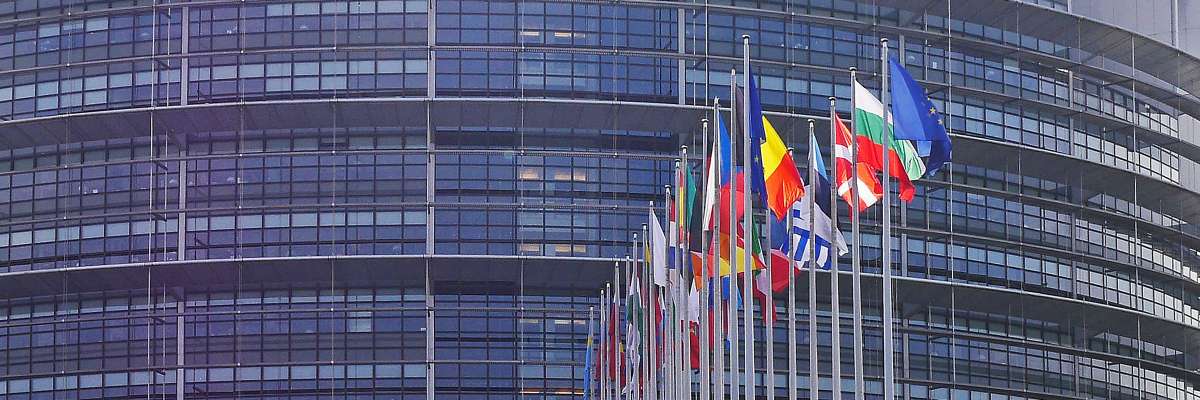
European projects by topic
Learn more about our European projects
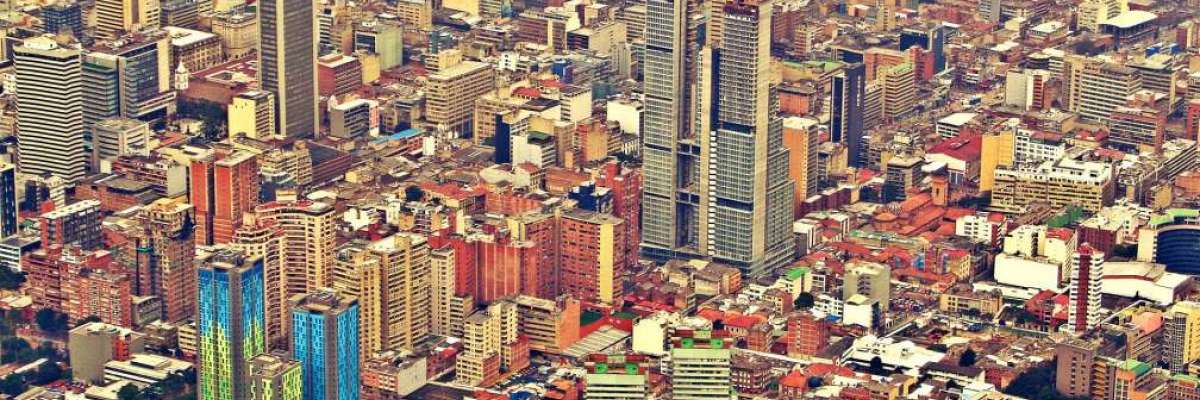
International projects
Learn more about our international projects
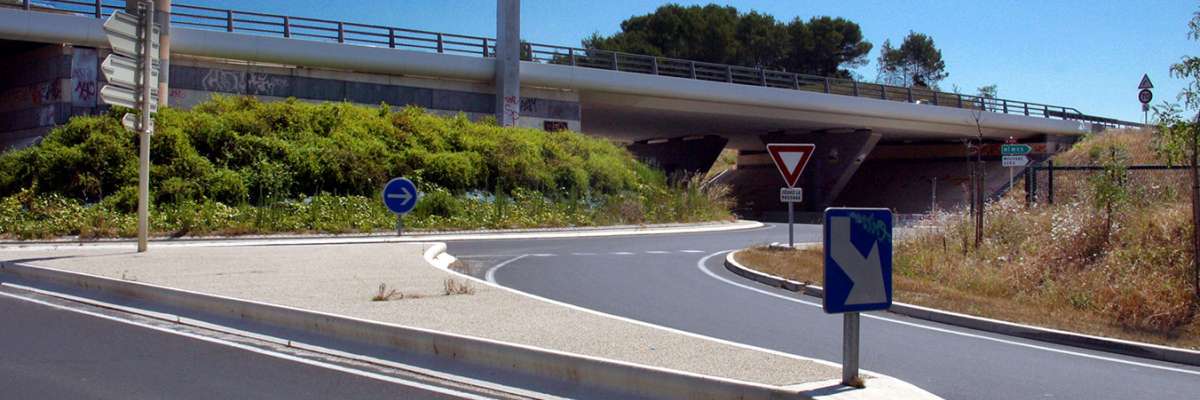
EU & international standardization
Learn more about ETE and BNTRA



